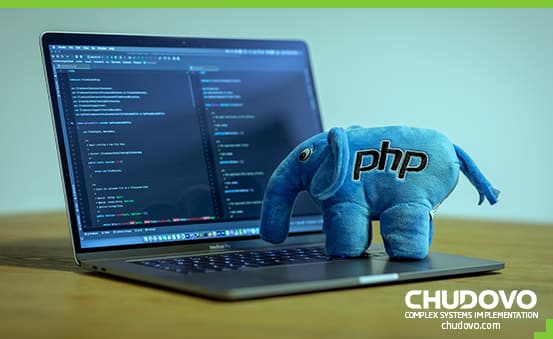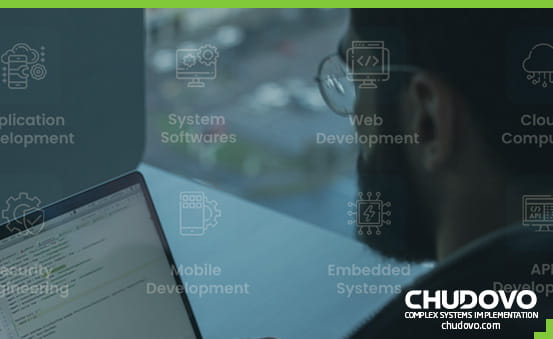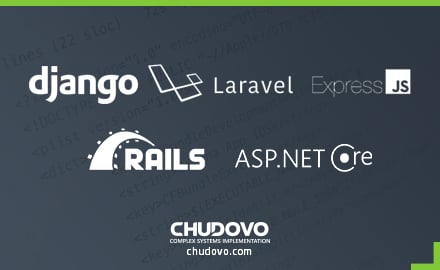Future of Web Development: Exploring 10 PHP Alternatives in 2023
As we look towards the future of web development in 2023, it’s impossible to ignore PHP’s powerful impact on the industry over the past few decades. Moreso, as technology continues to improve and new programming languages emerge, the idea of exploring alternatives to PHP that can offer high performance and increased flexibility for web and software development projects must be on the table.
In this blog article, we’ll dive into the world of web development and explore 10 powerful alternatives to PHP that are shaking up the industry. But before we get into that, let’s look at the current state of web development and why the need for these alternatives has arisen.
Table of contents
- The current state of web development
- The need for alternatives to PHP
- Exploring the Best Alternatives to PHP
- Node.js
- Python
- Ruby
- Go
- Kotlin
- Rust
- Elixir
- Swift
- Java
- C#
- Comparing PHP Alternatives
- Language Features and Syntax Comparison
- Performance and Scalability Comparison
- Frameworks and Libraries Comparison
- Community and Support Comparison
- Factors to Consider When Choosing the Right PHP Alternative for Your Web Project
- Web Development Use Cases for Each Alternative
- Developer Skill Set and Learning Curve Considerations
- Integration and Interoperability with Existing Software Stack
- Cost and Time-to-Market Considerations
- Conclusion
- FAQs
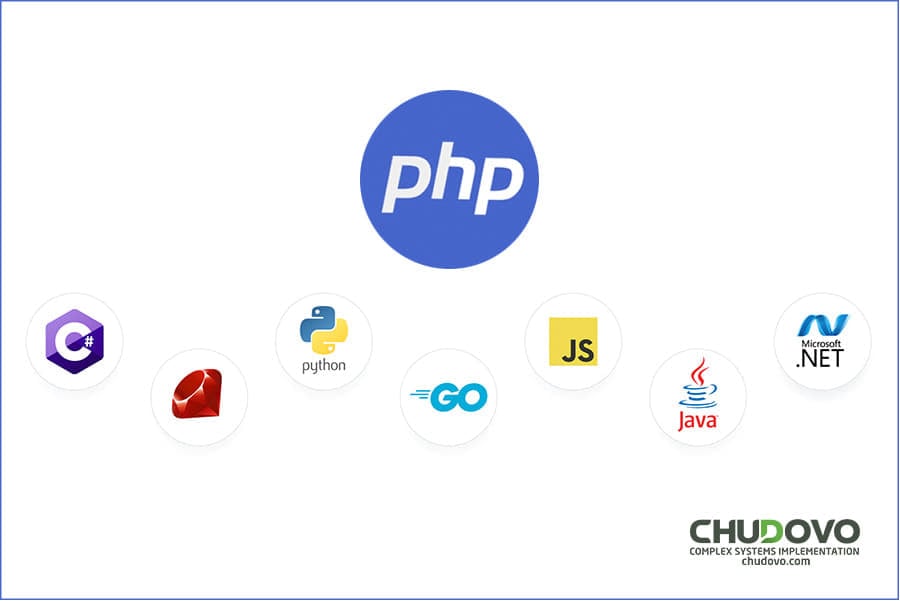
The Current State of Web Development
Web development has come a long way since the early days of the Internet. From basic HTML and CSS to complex JavaScript frameworks, developers are constantly pushing the boundaries of what’s possible online. But as the demands of users and businesses alike continue to evolve, the need for more powerful and versatile programming languages has become increasingly important.
PHP, for one, has been a popular choice for web development for many years, but it’s not without its limitations. While PHP is a powerful language, it can be slow and memory-intensive, hindering web application performance. Additionally, some developers have expressed preferences for other languages, such as Python, JavaScript, and Ruby, thus the need for alternatives to PHP.
The Need for Alternatives to PHP
As web technology continues to improve, so do the demands for web development. Developers need powerful and efficient tools to handle complex web projects and deliver high performance. That’s where alternatives to PHP come in.
There are several alternative programming languages and frameworks that can offer developers a more streamlined and powerful experience. These alternatives have gained popularity in recent years, offering a range of benefits, such as faster performance, better security, and improved functionality.
So without further ado, let’s look at some of the best alternatives to PHP that developers should keep an eye on in 2023 and the years to come. From cutting-edge languages to powerful frameworks, these options offer exciting possibilities for the future of web development.
Exploring the 10 Best Alternatives to PHP in 2023
Here are the top 10 PHP alternatives in 2023 and their respective advantages and disadvantages:
1. Node.js
Node.js is a powerful JavaScript-based runtime allowing developers to build scalable, high-performance applications. It’s a popular alternative to PHP because it’s lightweight and has robust features.
Advantages:
- Great for real-time applications
- Large community support
- High-performance with event-driven architecture
- Easy to learn for JavaScript developers
Disadvantages:
- Lack of standard library support
- Callback hell can make code difficult to maintain
2. Python
Python is an advanced programming language that is easy to learn and is widely used in scientific computing, data analysis, and web development. Its simplicity and readability make it an ideal choice for beginners. Its powerful frameworks, such as Django and Flask, make it a great alternative to PHP.
Advantages:
- Easy to learn with simple syntax
- Wide range of libraries available
- It can be used for multiple purposes
- Good for prototyping
Disadvantages:
- Not as fast as other languages
- Limited multi-threading support
3. Ruby
Ruby is a dynamic, object-oriented programming language famous for web development. Its powerful frameworks, such as Ruby on Rails, make it easy and seamless for developers to build web applications quickly.
Advantages:
- Clean syntax and easy to learn
- Great for rapid prototyping
- Large community support
- Rails framework offers a robust set of tools
Disadvantages:
- Slow performance compared to other languages
- Limited multi-threading support
4. Go
Go is a language developed by Google that’s optimized for high-performance applications. It’s an alternative to PHP because it has a simple syntax and is designed for concurrency.
Advantages:
- Fast performance with built-in concurrency
- Easy to learn with a simple syntax
- Garbage collection feature
- Static typing for better code stability
Disadvantages:
- Limited libraries compared to other languages
- Lack of generics can make code less flexible
5. Kotlin
Kotlin is a modern language developed by JetBrains that’s designed to be a better alternative to Java. It’s an alternative to PHP because it has a concise syntax and is interoperable with Java.
Advantages:
- Concise syntax and easy to learn
- Interoperable with Java
- Large community support
- Offers null-safety features
Disadvantages:
- Limited libraries compared to Java
- Slow build times for large projects
6. Rust
Rust is a systems programming language developed by Mozilla that’s designed for speed and safety. It’s an alternative to PHP because it offers low-level control and high performance.
Advantages:
- High performance with low-level control
- Safe and secure with built-in memory safety
- Offers easy concurrency and parallelism
- Great for systems programming
Disadvantages:
- Steep learning curve
- Limited libraries compared to other languages
7. Elixir
Elixir is a dynamic language designed to build scalable and fault-tolerant applications. It’s an alternative to PHP because it has a functional programming style and offers easy concurrency.
Advantages:
- Functional programming style
- Built-in concurrency and fault tolerance
- Great for building scalable applications
- Large community support
Disadvantages:
- Limited libraries compared to other languages
- Slow startup times for large projects
8. Swift
Swift is a modern language developed by Apple designed to develop iOS and macOS applications. It’s an alternative to PHP because it has a simple syntax and is designed for high performance.
Advantages:
- Easy to learn with a simple syntax
- Designed for high performance
- Interoperable with Objective-C
- Offers a robust set of tools for iOS and macOS development
Disadvantages:
- Limited use outside of Apple platforms
- Limited libraries compared to other languages
9. Java
Java is a popular language for enterprise-level software development and is widely used for web development. It’s an alternative to PHP because it has a strong set of libraries and is highly scalable.
Advantages:
- A robust set of libraries and tools
- Highly scalable for enterprise-level applications
- Great for building large projects
- Interoperable with other languages
Disadvantages:
- Verbosity can make code more complex
- Requires a lot of memory
10. C#
C# is a language developed by Microsoft that’s widely used for creating Windows applications and web development. It’s an alternative to PHP because it has a robust set of tools and is highly scalable.
Advantages:
- A robust set of libraries and tools
- Highly scalable for enterprise-level applications
- Interoperable with other languages
- Offers a robust set of tools for Windows development
Disadvantages:
- Limited use outside of Windows platforms
- Requires a lot of memory
Ultimately, the choice of language or PHP alternatives will depend mainly on the specific requirements of the project and the developer’s preferences. However, by exploring these 10 PHP alternatives, developers can stay on top of the latest technology and improve their software development skills.
PHP Alternatives: Compare and Contrast
Here, we’ll explore the 10 best alternatives to PHP mentioned earlier and compare them based on their language features and syntax, performance and scalability, frameworks and libraries, and community and support.
Firstly, let’s start with a table comparison of the 10 PHP alternatives based on the four comparison points highlighted:
| Programming Language | Features and Syntax | Performance and Scalability | Frameworks and Libraries | Community and Support |
| Node.js | Uses JavaScript syntax and offers event-driven programming paradigm | High performance, scalable, efficient I/O operations | Express, NestJS, Koa | Large and active community, strong support for JavaScript ecosystem |
| Python | Easy to learn and read syntax, offers strong typing, supports object-oriented programming paradigm | Moderate performance, suitable for data processing, machine learning, and web development | Django, Flask, Pyramid | Large and active community, strong support for scientific computing, machine learning, and web development |
| Ruby | Offers simple and readable syntax, supports object-oriented programming paradigm | Moderate performance, suitable for web development and scripting | Ruby on Rails, Sinatra | Active community, strong support for web development |
| Go | Offers simple and concise syntax, supports concurrent programming paradigm | High performance, suitable for networking and web development | Gin, Echo, Beego | Growing community, strong support for cloud-native computing |
| Kotlin | Offers concise and expressive syntax, supports functional programming paradigm | High performance, suitable for Android app development, web development | Spring Boot, Ktor | Growing community, strong support for Android app development, web development |
| Rust | Offers modern and safe syntax, supports low-level programming paradigm | High performance, suitable for systems programming and web development | Rocket, Actix | Growing community, strong support for systems programming |
| Elixir | Offers functional and concurrent syntax, supports distributed computing paradigm | High performance, suitable for web development and distributed systems | Phoenix, Plug | Growing community, strong support for distributed systems |
| Swift | Offers safe and modern syntax, supports object-oriented and functional programming paradigms | High performance, suitable for iOS app development and web development | Vapor, Kitura | Growing community, strong support for iOS app development and web development |
| Java | Offers simple and readable syntax, supports object-oriented programming paradigm | High performance, suitable for enterprise applications, web development | Spring Boot, Jakarta EE, Micronaut | Large and active community, strong support for enterprise applications, web development |
| C# | Offers easy to learn and readable syntax, supports object-oriented programming paradigm | High performance, suitable for Windows desktop and web development | .NET Core, ASP.NET | Large and active community, strong support for Windows desktop and web development |
Note: This is a high-level comparison and there may be nuances and differences not captured here. It’s important to consider the specific requirements and constraints of your project when choosing a programming language or framework.
Now let’s make a close and detailed comparison of the 10 best PHP alternatives based on language features and syntax, performance and scalability, frameworks and libraries, and community support.
Language Features and Syntax Comparison
Node.js
Node.js is a JavaScript-based runtime built on Chrome’s V8 JavaScript engine. It allows developers to build scalable, high-performance network applications using an event-driven, non-blocking I/O model. Node.js is known for its ease of use and speed of development.
Python
Python is a high-level, interpreted programming language with dynamic semantics. It is a general-purpose language widely used for web development, scientific computing, data analysis, artificial intelligence, and more. Python’s syntax is simple and easy to learn, making it an excellent choice for beginners.
Ruby
Ruby is a dynamic, open-source programming language emphasizing simplicity and productivity. It has an elegant syntax and is often used for web development, prototyping, and scripting. Ruby is known for its powerful and flexible object-oriented programming features.
Go
Go is a statically-typed, compiled programming language designed by Google. It is known for its efficiency, speed, and simplicity. Go’s syntax is similar to C, making it an excellent choice for developers familiar with C programming.
Kotlin
Kotlin is a modern, statically-typed programming language developed by JetBrains. It is designed to interoperate with Java, making it a popular choice for Android app development. Kotlin’s syntax is concise and easy to read, making it a great choice for beginners and experienced developers.
Rust
Rust is a systems programming language designed for safety, concurrency, and performance. It is known for its memory safety features, making it an excellent choice for developers who want to write high-performance code without worrying about memory errors.
Elixir
Elixir is a dynamic, functional programming language designed for building scalable and fault-tolerant applications. It runs on the Erlang virtual machine and is known for its simplicity and ease of use.
Swift
Swift is a powerful and intuitive programming language developed by Apple for macOS, iOS, watchOS, and tvOS development. It is designed to be easy to learn, with a syntax that is both concise and expressive.
Java
Java is a popular programming language for developing web and mobile applications, enterprise applications, and more. It is known for its stability, scalability, and security features.
C#
C# is a modern, object-oriented programming language developed by Microsoft. It is widely used to create Windows, games, and web applications. C #’s syntax is similar to C++, making it a great choice for developers familiar with C++ programming.
Performance and Scalability Comparison
Regarding performance and scalability, Node.js, Go, and Rust are among the most potent alternatives to PHP. Node.js is known for its fast I/O operations, making it a great choice for real-time web applications. Go is designed for concurrent programming, making it a great choice for high-performance network applications. Rust is known for its low-level control and memory safety, making it a great choice for system-level programming.
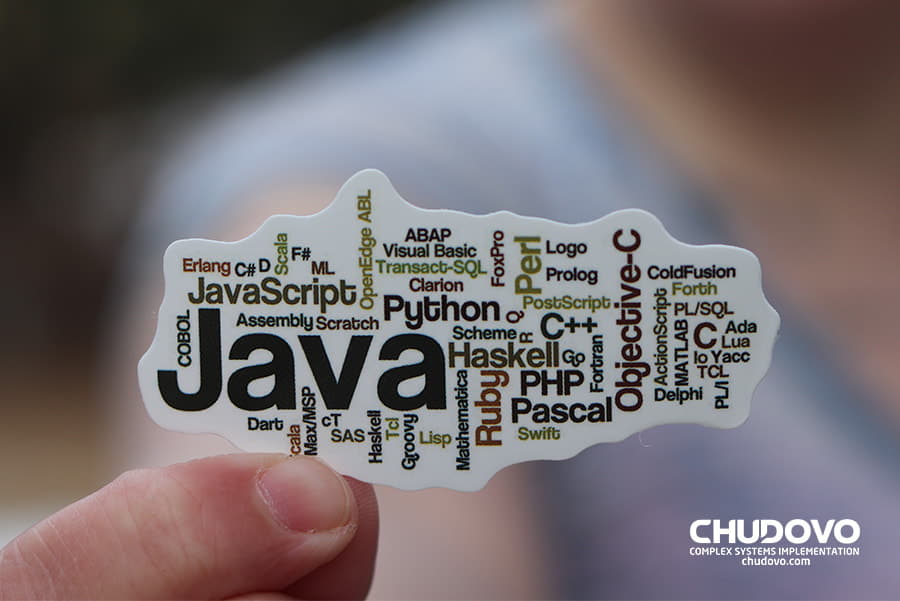
Frameworks and Libraries Comparison
When it comes to frameworks and libraries, each of the PHP alternatives has a wide range of options to choose from. For example, Node.js has popular frameworks like Express.js and Koa.js, while Python has popular frameworks like Django and Flask. Ruby has popular frameworks like Ruby on Rails and Sinatra, while Go has popular frameworks like Gin and Echo. Kotlin has popular frameworks like Spring and Ktor, while Rust has frameworks like Rocket and Actix-web.
Elixir has popular frameworks like Phoenix and Nerves, while Swift has popular frameworks like Vapor and Kitura. Java has popular frameworks like Spring and Hibernate, while C# has popular frameworks like ASP.NET and Entity Framework.
Each of these alternatives has a thriving ecosystem of libraries and tools that can be used to build powerful web and software applications. Depending on the project requirements and the developer’s preferences, these alternatives could be a great choice.
Community and Support Comparison
When it comes to community and support, each of the PHP alternatives has a large and active community of developers. Node.js, Python, and Ruby have been around for a long time and have a well-established community of developers and users. Go, and Rust are newer languages but are growing rapidly in popularity, with active communities of developers and contributors.
Kotlin is backed by JetBrains, a well-known software development company with a growing community of developers. Elixir is backed by the Erlang community, which has been around for over 30 years and has a large and active community of developers. Swift is approved by Apple, which provides extensive documentation and support for the language. Java and C# are also backed by major tech companies and have vast and active communities of developers.
Whether you’re looking for a language that is easy to learn, highly performant or has a large and active community, there is always a PHP alternative that can meet your needs. By comparing these alternatives in terms of their language features and syntax, performance and scalability, frameworks and libraries, and community and support, you will be better positioned to choose the one best suited for your next web or software development project.
Factors to Consider When Choosing the Right PHP Alternative for Your Web Project
If you’re a web developer, you’re no stranger to PHP. This powerful programming language has been the go-to choice for web development for many years. But as technology continues to improve and new languages and frameworks emerge, it’s worth considering its alternatives. Quickly, we’ll explore the factors to consider when choosing the right PHP alternative for your web project.

Certified engineers
Convenient rates
Fast start
Profitable conditions
Agreement with
EU company
English and German
speaking engineers
Web Development Use Cases for Each Alternative
When considering an alternative to PHP, it’s essential to consider the specific use case for your web project. For example, if you’re building a web application with a lot of real-time functionality, you might consider Node.js. If you’re building a highly scalable website, consider Golang. And if you’re building a website with a lot of data processing, consider Python. Each alternative has its strengths and weaknesses, so it’s important to choose the one best suited to your needs.
Developer Skill Set and Learning Curve Considerations
Another important factor to consider when choosing an alternative to PHP is your team’s skill set and the learning curve associated with the new language or framework. For example, suppose your team is already proficient in JavaScript. In that case, choosing Node.js as an alternative to PHP might make sense, as it uses the same language. On the other hand, if your team has experience with Python, choosing Django or Flask might be a better fit.
Integration and Interoperability with Existing Software Stack
When choosing an alternative to PHP, it’s important to consider how well it integrates with your existing software stack. For instance, if your web project relies heavily on a particular database technology stack, you’ll want to choose an alternative that has strong support for that technology stack. Similarly, if your web project needs to interact with other software or services, you’ll want to choose an alternative that has good interoperability with those systems.
Cost and Time-to-Market Considerations
Finally, it’s essential to consider the cost and time-to-market implications of choosing an alternative to PHP. While some alternatives may be more powerful or better suited to your needs, they may also require more time and resources to develop and maintain. Additionally, licensing costs and other expenses associated with the new technology should be considered when deciding.
Choosing the suitable alternative to PHP for your web project requires careful consideration of several factors. By taking into account all these factors enumerated, you’ll be better equipped to make an informed decision. While PHP remains a popular choice for web development, especially when a top-level PHP web development company like Chudovo is hired, exploring alternatives can help you build more powerful, high-performance web projects.
Concluding Thought
The future of web development is dynamic and exciting at the same time, with new and innovative technologies emerging every day. Having explored the 10 best PHP alternatives in 2023, we can now see that the world of programming languages and web development is evolving at an unprecedented rate.
The rise of robust frameworks and high-performance languages is a clear indication of how technology is improving and shaping the future of software development. The preferences for other languages and alternatives for web projects signify the diversification of the web development landscape.
While PHP development remains popular for many developers, exploring the best alternatives to PHP can lead to more efficient and effective web projects. As we look to the future, we expect to see continued growth in using new languages and technologies that will push the boundaries of what is possible in web development.
In conclusion, the fact remains the world of web development is constantly evolving, and staying on top of the latest trends and technologies is essential for success. By exploring the best alternatives to PHP, developers can harness the power of the latest programming languages and tools to create powerful, high-performance web projects that meet users’ needs in today’s fast-paced digital world. So, let’s continue to push the boundaries of web development and create a brighter future for all of us.
FAQs
What are the best alternatives to PHP for web development?
Some of the best alternatives to PHP for web development include Node.js, Ruby on Rails, Python, and Java. These languages offer powerful frameworks and tools for web development, allowing developers to easily create high-performance web applications.
What are the advantages of using these alternatives over PHP?
One advantage of using these alternatives over PHP is their performance. Many of these languages have been designed specifically for web development and offer powerful frameworks and libraries that can help improve the performance of web applications. Additionally, these languages provide better scalability and are often more flexible than PHP, allowing developers to build more complex web projects.
Do I need experience in other languages to use these alternatives?
While it may be helpful to have some experience with other programming languages, it is not a necessity in using these alternatives. Many developers have successfully transitioned from PHP to these languages and found them powerful and easy to use. Additionally, many resources are available online to help developers learn these languages and start web development using these alternatives.
If you need highly qualified PHP software developers at the right price for your project, contact us now!


